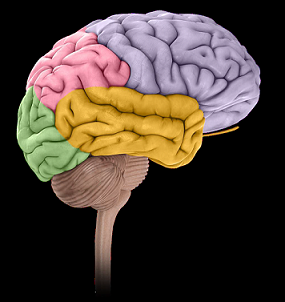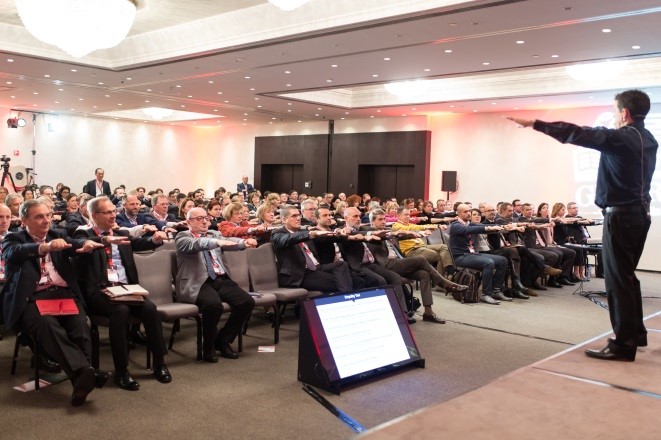Co-Founder, CEO and Head of Science at Neurozone, Dr Etienne van der Walt’s work helps bridge neuroscience breakthroughs with high performance leadership for individuals and organisations.
During day 2 of the GEB Forum, Etienne invited us to a fascinating journey into the brain. Understanding how the brain really works can help us perform at our best as individuals and as organisations. He also set out to demonstrate that Empathy is essential to our brain performance and to organisations ability to succeed and innovate.
What do empathy, compassion and altruism have to do with success? And how can we upgrade our individual and collective brain? Find below highlights from his illuminating speech.
How our brain works?
Few facts about our brain:
It weighs about 1.4 kg and contains 100 billion electrically active brain cells and a trillion supporting cells. Its surface (the cortex) would be about the size of a baby blanket if we could spread it outside of the skull.
The cortex is essential to drive everything we do (from speaking to decision-making and planning) into our body and actions.
Different areas of the cortex (lobes) are associated with different functions (see below). But the idea that the right side is more creative and the left side is more analytical is today largely refuted by science.
Can we upgrade our brain?
Yes, it can be physically done.
The brain is highly neuroplastic: it can grow, strengthen brain cells and connections and develop new ones. Several ways help us enhance capabilities of learning and innovation.
The first Etienne mentioned is physical exercise but in the form of interval training (series of high intense training for very short periods of time, from 3 to 10 minutes).
Other renown techniques include ensuring good sleep and Mindfulness, as practiced in day 1 with Rasmus Hougaard and his team.
Finally bonding and belonging are important to ensure our wellbeing and reduce chronic stress.
Who is in control?
Our brain makes a huge amount of calculations per second: but less than 1%of those calculations are conscious. We are vastly unconscious beings.
This means you solve your more complex problems mostly in the unconscious, when you sleep. In particular the latter part of the night is when the unconscious brain makes complex decisions. This is where empathy resides, playing a crucial role in guiding our decisions and actions.
Lessons for organisations:
So we know that the unconscious drives what we do, and that to ensure our survival it drives us away from threats and maximise rewards. What is interesting is that it moves us away from threats 4 to 6 times as often as it maximises reward. This means that, if we perceive a threat, we are ready to forsake the reward and to renounce the opportunities for innovation.
If employees feel unsafe, perceive negative feedback or tensions in a team, they will need about 4 to 6 times more positive messages to get the situation back to normal.
Our brain works as a social construct within a social group. It is not only responsible for vital life functions (via the brainstem, which is dedicated to ensure our physiological wellbeing).
The “emotional brain” (which resides in the limbic system) navigates us in a goal-directed fashion and ensures our emotional wellbeing. Its components should be well nourished to avoid a stress response. Organisations can do so by promoting sense of belonging, of identity, and of meaningful contribution to the group.
On this foundation, individuals and teams can perform better. Empathy and compassion act as glue for the collective brain. When collective creativity works at its best, individual performance and innovation ability is enhanced.
Soft skills can have very hard outcomes. Research performed by Neurozone demonstrates strong correlation between empathy and compassion on one side and resilience, self-leadership, learning and innovation capacity on the other.
More information on Neurozone:

